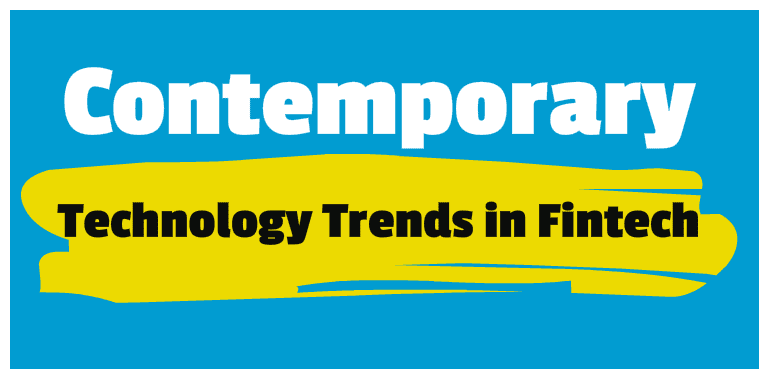In today’s financial media, no term is more ubiquitous than fintech. The term covers a range of financial fields such as lending, investment, and retail banking. Offering education and customer satisfaction in an area formerly inscrutable and dictated by big inflexible corporations, fintech helps to put the power in the customer’s hands.
When we look at how technology is transforming finance sector today, we can clearly foresee the move towards the greater adoption of the latest innovations. Let us have a look at 10 contemporary technology trends that are significant in fintech.
1) Rise of Big Data
Fintech companies are focusing on Big Data to assess credit worthiness. Some companies even believe they can determine the personality of an individual through social media data analysis for reduced default rates and higher loan acceptance rates. For example, CashCare uses Big Data technology to offer a real-time credit scoring for the customers.
2) Chat applications
Social media have changed the way people socialize, consume, interact, and is now changing the way we bank and manage our finances. Snapcash by Snapchat, Facebook Pay, Kakao Pay in Kakao Talk and WeChat’s integrated payment solution are all evidence that a new era has come, an era where chat applications are used to send money to our friends and check our account bank balance.
3) Biometric authentication
As financial services providers invest and experiment with many technologies to improve security, biometric authentication is gaining remarkable interest from fintech. One area that has seen a rapid adoption of biometrics is transaction authentication. An example of a company that has already embraced biometric authentication is MasterCard. The company launched its ‘selfie pay’ biometric authentication app in Europe last year.
4) Real-time invoices
Fintech companies are using technology to get the headache out of invoicing. Prompt collection of money is in high demand with payments riding on the back of invoice automation. Companies are moving from just imaging and uploading invoices to ERP, to where digital signatures are facilitating payments.
5) Voice recognition
With the popularity of the Amazon Echo, bank and fintech companies are both looking at the new possibilities to serve their clients. For instance, Santander launched voice banking technology in the UK last year. Barclays has also brought voice recognition tech to phone banking.
6) Rise of alternative products
One of the biggest trends is that alternative finance products are continuing to go mainstream. Alternative finance options such as equity crowdfunding and peer-to-peer (P2P) lending are increasing, and governments are updating regulations to enable more investors to participate in these markets. Other new segments that are gaining investment and media attention are insurtechs and regtechs.
7) Internet of Things
The Internet of Things (IoT) has been progressively growing, influencing numerous industries and businesses including fintech. Fintech companies use IoT technologies to create more engaging rewards, or to generate more personalised customer cross-sell opportunities. With IoT, companies are devising better ways to reduce cost, improve risk management and improve overall operational efficiency. For example, Groceries by MasterCard is an IoT application that allows effortless purchasing groceries while standing in front of the refrigerator
8) Blockchain
Blockchain is one of the most awe-inspiring innovations since the internet was discovered. Fintech companies are coming up with wonderful use of blockchain technology. The technology is providing public accountability and helping gain more trust in the financial sector.
9) Increased automation
The financial services sector is seeing a rapid increase in robot technology adoption. Robotics is standardising tiresome, manual tasks to provide increased accuracy and control to employees in many financial services sectors, mainly including high-volume transaction processing, compliance and regulation, customer interaction management and risk management.
10) Artificial intelligence
Artificial intelligence(AI) seems to be the direction the fintech sector is headed. AI holds the promise of stronger compliance, better decision-making, efficiency and potentially even more profits for investors. Most recently, Venmo, Sentient Technology, and Wealthfront have added artificial intelligence capabilities to their products. Artificial intelligence is enabling these companies to analyse customer data to create better strategies.



































